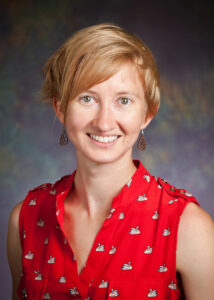 Kate Davis, Ph.D. (Assistant Professor, Electrical & Computer Engineering, Texas A&M University) will present the webinar titled “Opportunities for Deep Learning-based Detection of Stealth Attacks in Power Systems” at 3 P.M. CST on December 21, 2022.
Kate Davis, Ph.D. (Assistant Professor, Electrical & Computer Engineering, Texas A&M University) will present the webinar titled “Opportunities for Deep Learning-based Detection of Stealth Attacks in Power Systems” at 3 P.M. CST on December 21, 2022.
Register in advance here.
Abstract
Power systems are cyber-physical critical infrastructure with interdependent electrical and communications networks whose data generated is immense. Machine learning (ML) approaches offer a tremendous value proposition to catalyze the data for proactive defense against a wide variety of physical, cyber, and cyber-physical threats at a range of time scales. A challenge is to bring maximal benefits of ML techniques to fruition in practice in large-scale power systems. This requires identifying and mitigating weaknesses and risks of data centric detection approaches. False data injection attacks (FDIAs) aim to break the integrity of measurements by injecting false data. FDIAs of particular interest are “stealth” or “unobservable,” as they are crafted to bypass traditional bad data detection mechanisms. This talk presents research on detecting unobservable FDIAs in large-scale power systems using machine learning techniques that alert grid operators against FDIAs ahead-of-time such that protective measures can be applied. The defense mechanisms are developed through a methodology called DEFENDA (DEtection of FalsE and uNexpected Data Attacks). DEFENDA’s detection, localization, and mitigation techniques are based on graph neural networks and autoencoders and combine deep learning with detailed power system knowledge to quickly detect and localize sensor manipulation attacks as well as correct the false data. Then, we discuss how DEFENDA research can be applied and extended going forward, particularly to answer the question of how cyber-physical power system data can most effectively be applied to decision-making problems across different time horizons to allow operators to respond quickly in an informed manner.
Speaker
Dr. Kate Davis is an Assistant Professor in the Department of Electrical and Computer Engineering at Texas A&M University. Dr. Davis’s work has pioneered significant enhancements to power system cyber-physical security by advancing cyber-physical modeling and analysis capabilities. Prior to joining Texas A&M in 2017, Dr. Davis was a Software Engineer and Senior Consultant for PowerWorld Corporation and with University of Illinois’s Information Trust Institute as a Research Scientist. Her expertise includes large-scale modeling, analysis, and simulations of cyber-physical power system critical infrastructure, where she has particular interest in security-oriented control system analysis techniques. She also works to facilitate transition to practice of state-of-the-art cyber-physical situational awareness capabilities for power utilities. She was recognized as IEEE Senior Member (2018), received the Texas A&M Engineering Experiment Station Engineering Genesis Award (2019), and became a Texas A&M Engineering Experiment Station (TEES) Young Faculty Fellow (2021). She leads the Resilient Energy Systems Lab (RESLab), the cyber-physical emulation testbed created by her group, fully functional since 2020.
Dr. Davis’ research website can be viewed here.
